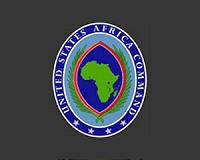| . |  |
. |
Khartoum, Sudan (UPI) Dec 8, 2010 Sudan, Africa's largest country, is in the final run-up to a critical referendum on independence for the oil-rich south in January that seems certain to split the war-scarred state. Many fear it could also trigger a new conflict between the north, dominated by Arab Muslims, and the south, which is overwhelmingly Christian and animist. The historic referendum, scheduled for Jan. 9, is part of a 2005 peace agreement that ended two decades of civil war in which an estimated 2 million people died, largely from famine and disease stemming from the bloodletting. Voter registration in the semi-autonomous south closed last Wednesday with some 3 million people signed up. The process took place peacefully despite the tension generated by Khartoum's efforts to delay the referendum and fears the Khartoum regime won't honor the result of southerners vote for secession, as they are expected to do. In that event, the southerners would be the first non-Arab Middle Eastern people to exercise self-determination since Israel was established in May 1948. The partitioning of Sudan "would be the first break-up of an Arab country in modern history, with potentially far-reaching ramifications for the Middle East," says Israeli analyst Yossi Alpher. "How Arab Sudan and the rest of the world react to a vote for secession could be decisive for regional stability. And regional stability is important if moderate Arab states are to counter Iran and its Islamist Arab allies and provide support for the Arab-Israeli peace process." Many southerners suspect that President Omar al-Bashir's regime in Khartoum, which depends on southern oil, is seeking to postpone the voting because he doesn't want to lose the major source of the state's foreign currency revenue. The Sudan People's Liberation Movement, which has run the south since the 2005 pact was signed, declared at the weekend it wouldn't accept a delay "even for a single day." Some three-quarters of Sudan's oil production of 500,000 barrels a day come from the south. Under the 2005 pact, this revenue is shared between the two sides but that will stop if the south secedes. According to the southern government's Ministry of Finance and Economic Planning, 98 percent of the south's budget comes from oil. That has totaled more than $8 billion over the last five years. There is a deep well of distrust between al-Bashir's ruling National Congress Party in the north and the SPLM, led by former rebel commander Salva Kiir. "Khartoum may be increasingly resigned to the reality of partition," observed Zach Vertin, Horn of Africa analyst for the Brussels-based International Crisis Group, "but it could still attempt to extort major concessions from the south in exchange for endorsement of the referendum." The United States is leading diplomatic efforts aimed at ensuring that the referendum takes place on schedule and that al-Bashir's regime doesn't sabotage the process. U.S. President Barack Obama last month offered to remove Sudan from the State Department's list of sponsors of terrorism as early as July 2011 if Khartoum allows the highly charged referendum to go ahead without interference. Sudan has been on that blacklist since 1993, when it harbored Osama bin Laden, although in recent years Khartoum has cooperated with Washington on counter-terrorism operations. That offer was part of a U.S. package of incentives that also included debt relief, ending sanctions and normalizing relations. A separate but equally critical referendum is to be voted on in the oil-rich Abyei region, which straddles the north-south boundary. Its people will vote on whether to join the north or the south. Given the high stakes involved, some analysts believe that al-Bashir, wanted by the International Criminal Court on 10 charges of genocide and crimes against humanity, may consider using force to prevent the south's secession. But Vertin doesn't believe that will happen, particularly as the regime is locked in another intractable conflict in the western province of Darfur that began in February 2003. There, government-backed militias have been accused of massacring civilians, earning Khartoum further international opprobrium. "The prospect of a return to large-scale conflict is limited," he said. "There's lots of positioning and rhetoric but neither side wants war, or has anything to gain from it. It would be a lose-lose scenario."
Share This Article With Planet Earth
Related Links Africa News - Resources, Health, Food
 Spain offered to host Africom: WikiLeaks
Spain offered to host Africom: WikiLeaksMadrid (AFP) Dec 8, 2010 The Spanish government offered to host the US military command for Africa (Africom) in southern Spain, according to diplomatic cables released by WikiLeaks. Prime Minister Jose Luis Rodriguez Zapatero told newly arrived US Ambassador Alan Solomont in January that "Spain was open to an expanded US Government presence" at the US Naval Base in Rota, near the southern port of Cadiz, "for Africom ... read more |
|
| The content herein, unless otherwise known to be public domain, are Copyright 1995-2010 - SpaceDaily. AFP and UPI Wire Stories are copyright Agence France-Presse and United Press International. ESA Portal Reports are copyright European Space Agency. All NASA sourced material is public domain. Additional copyrights may apply in whole or part to other bona fide parties. Advertising does not imply endorsement,agreement or approval of any opinions, statements or information provided by SpaceDaily on any Web page published or hosted by SpaceDaily. Privacy Statement |